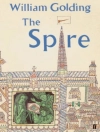In ‘Betty Wayside, ‘ Louis Stone delves into the complexities of life in early 20th-century Australia, portraying the struggles of a young woman navigating personal and societal expectations. The novel unfolds with vivid characterizations and an engaging narrative style that blends realism with an acute psychological depth. Stone’s portrayal of Betty’s journey serves as a lens through which the reader can explore themes of love, betrayal, and the pursuit of autonomy against the backdrop of a changing cultural landscape, effectively capturing the spirit of the times. Louis Stone, born in 1871, was influenced by the socio-political issues surrounding him, including class differentiation, gender roles, and the evolving identity of Australian society. His background as a journalist and a keen observer of human nature informs the rich textures of his writing, allowing him to create a compelling protagonist in Betty. Stone’s experiences reflected in his works emphasize the inner conflicts of marginalized voices, a theme that resonates profoundly in ‘Betty Wayside.’ This novel is highly recommended for readers interested in early Australian literature or those seeking a profound exploration of a woman’s plight for independence. It not only provides historical insight but also invites critical reflection on the societal norms that continue to shape individual destinies.
Sobre o autor
Louis Stone (1871–1935) was an eminent Australian novelist and playwright who left an indelible mark on the literary canvas of his time. Born in Leicester, England, Stone migrated to Australia with his family in 1884, where he later became a significant figure in the Australian literary community. Stone’s work often sheds light on the social fabric and the struggles within urban settings. He is best known for his novel ‘Jonah, ‘ which provides a gritty depiction of life in the Sydney suburb of Waterloo. ‘Betty Wayside, ‘ a lesser-known work, further explores themes pertinent to Australian society and the complexities of human relationships. Stone’s literary style is frequently characterized by its realism and psychological depth, drawing readers into the lived experiences of his characters. He skillfully used language to reflect the vernacular of Australia, contributing to the authenticity of the voices in his novels. Despite a period of obscurity, Stone’s contribution to Australian literature has been re-evaluated, highlighting his role in the development of Australian cultural identity through literature. Though his oeuvre is not extensive, Louis Stone’s novels remain a valuable insight into early 20th-century Australian life, and his work continues to be studied for its cultural and literary significance.












